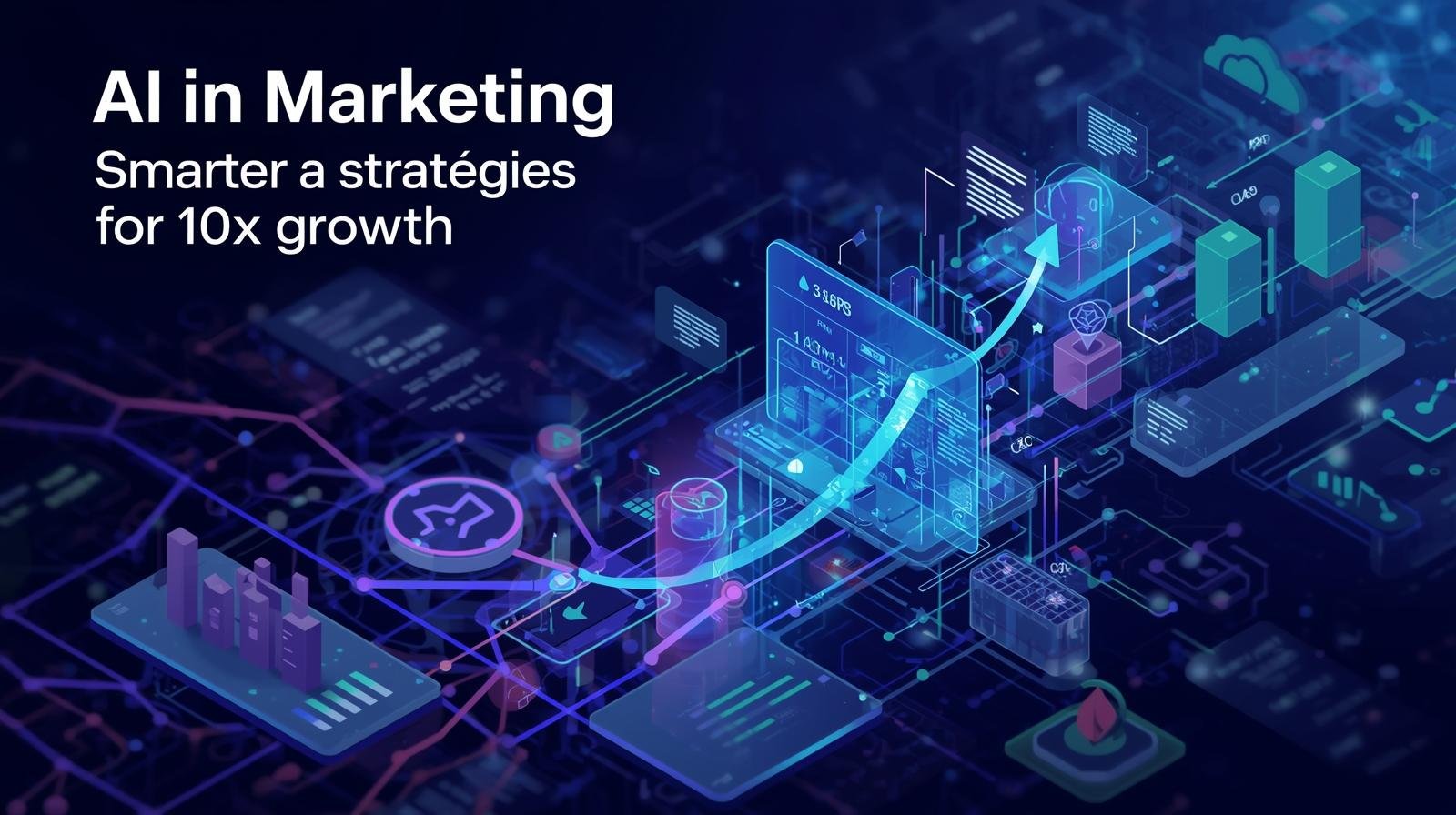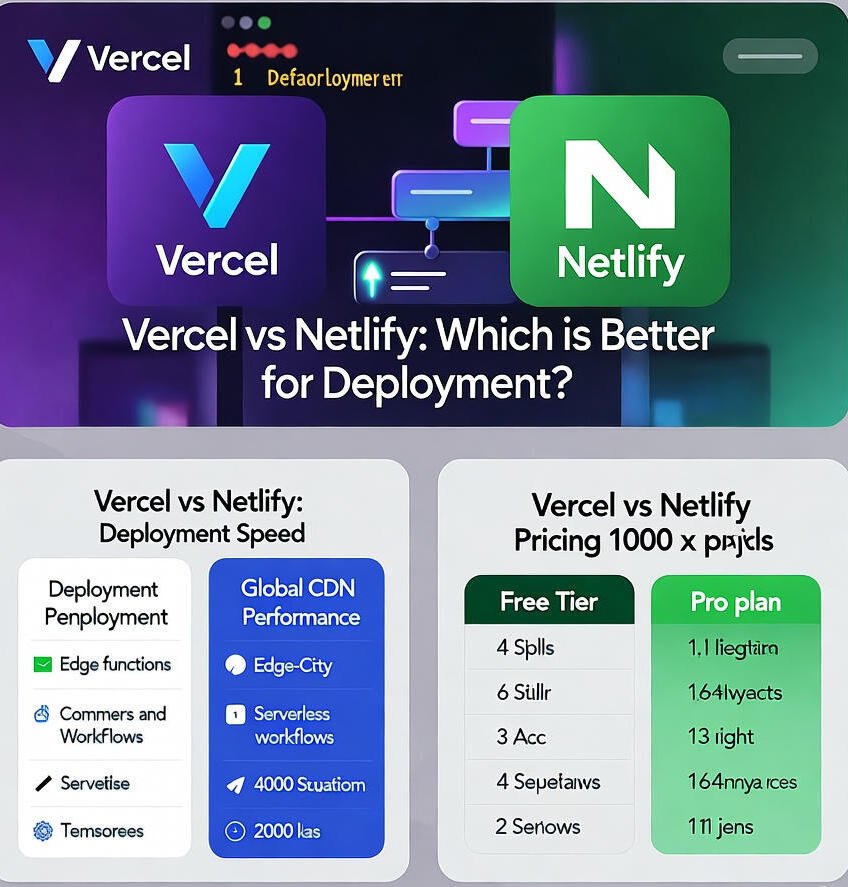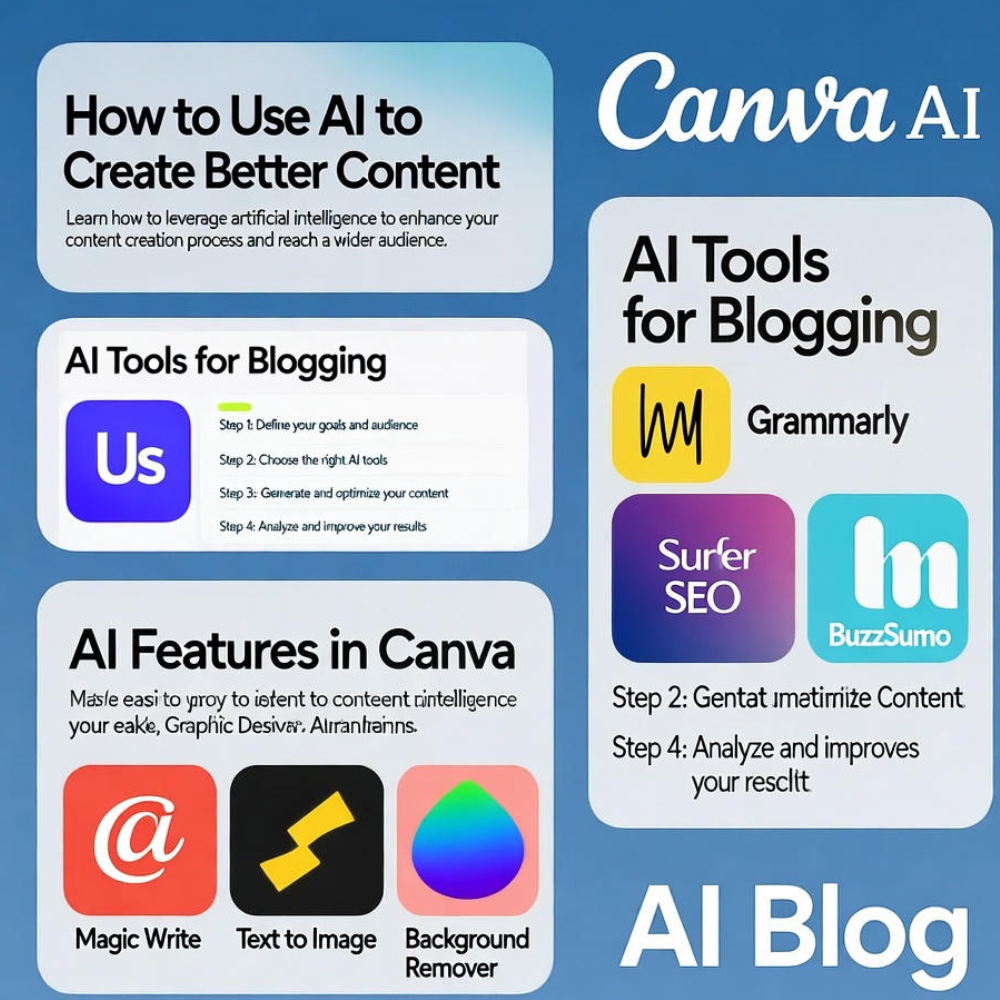In today’s fast-paced digital landscape, marketing is no longer about guesswork — it’s about precision, personalization, and performance. The secret behind this evolution? Artificial Intelligence (AI).
From analyzing massive datasets to crafting rolex replica swiss made personalized campaigns, AI is transforming how brands connect with customers. What used to take teams of marketers weeks to plan can now be done in minutes — smarter, faster, and with better results.
In this blog, we’ll explore how AI is reshaping marketing, the tools that make it possible, and how you can leverage it to achieve 10x business growth.
1. The Rise of AI in Marketing
AI has shifted from being a futuristic concept to a core marketing necessity. Businesses large and small now use AI to streamline marketing processes, understand consumer behavior, and drive conversions.
But what exactly makes AI such a powerful force in marketing?
Key Advantages:
- Data-driven insights: AI can analyze customer data instantly to uncover hidden trends.
- Hyper-personalization: Every customer receives a unique experience, boosting engagement.
- Automation: AI handles repetitive marketing tasks, freeing time for creative strategy.
- Predictive power: AI forecasts trends and outcomes, helping marketers make smarter decisions.
In short, AI takes the guesswork out of marketing, replacing it with intelligent automation and real-time optimization.
2. How AI Understands Your Customers Better Than You Can
The heart of marketing lies in understanding customer needs — and AI excels at that. Through machine learning and data analytics, AI can process millions of data points from customer behavior, demographics, and purchase history.
AI-Driven Customer Insights Include:
- Buying preferences and intent
- Browsing and engagement patterns
- Sentiment analysis (how customers feel about your brand)
- Lifetime value predictions
These insights empower marketers to create campaigns that truly resonate, ensuring every message feels personal, relevant, and timely.
Example:
Netflix uses AI to recommend shows you’re likely to watch next. This personalization strategy not only keeps users engaged but also builds loyalty — a lesson any brand can apply.
3. Hyper-Personalization: The New Gold Standard
Gone are the days of generic marketing messages. Today, consumers expect customized experiences — and AI makes it possible at scale.
AI-powered personalization tools like Adobe Sensei, Dynamic Yield, or HubSpot AI analyze real-time user data to deliver dynamic content such as:
- Personalized emails
- Custom product recommendations
- Tailored ads and landing pages
For example:
A fashion e-commerce startup can use AI to show users clothing suggestions based on previous purchases, current trends, and even the weather in their area.
This level of personalization boosts conversions, reduces bounce rates, and builds lasting relationships.
4. AI-Powered Content Creation
Content is still king — but now, AI is the kingmaker. Tools like Jasper AI, Copy.ai, and Writesonic help marketers generate engaging copy for:
- Blog posts
- Social media captions
- Product descriptions
- Email campaigns
AI analyzes your tone, target audience, and intent to produce human-like, brand-consistent content in seconds.
Benefits:
- Saves time and resources
- Ensures brand voice consistency
- Optimizes content for SEO automatically
AI doesn’t replace creativity — it enhances it. It gives marketers a head start, freeing them to focus on storytelling and strategy.
5. Smarter Advertising: AI-Driven Campaign Optimization
Running successful ad campaigns used to involve a lot of trial and error. AI changes that by continuously learning which creatives, audiences, and placements perform best.
How AI Optimizes Ads:
- Smart bidding: Platforms like Google Ads and Meta Ads use AI to maximize ROI.
- Audience targeting: AI segments users with extreme precision based on behavior and interests.
- Performance prediction: AI forecasts campaign outcomes and adjusts automatically.
Example:
If an ad performs poorly in one demographic, AI instantly reallocates budget to higher-performing segments — ensuring you never waste ad spend.
Startups using AI in advertising often see conversion rates double or triple, proving that smarter campaigns yield smarter growth.
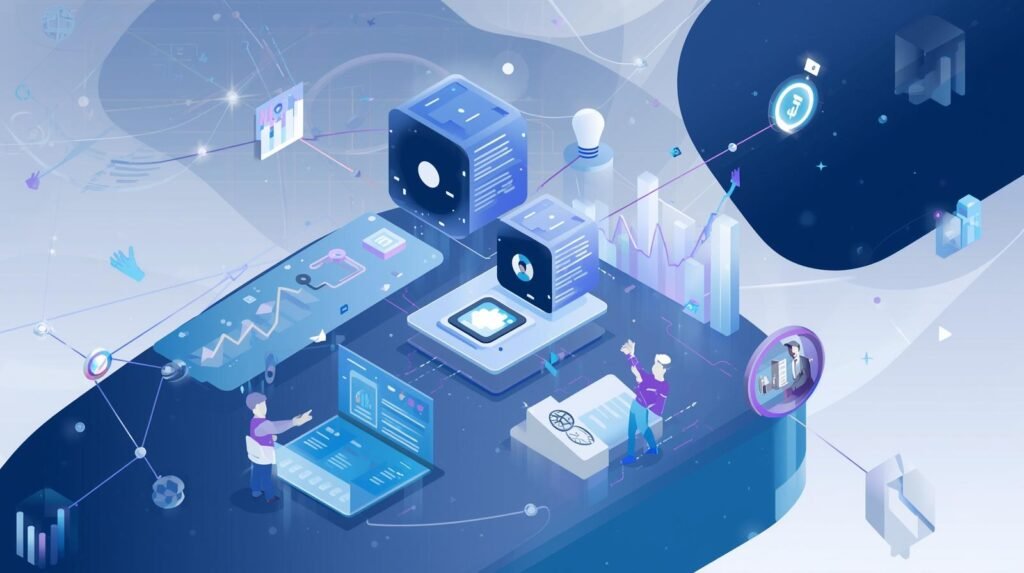
6. Email Marketing Automation with AI
Email remains one of the highest ROI marketing channels, and AI makes it even better.
AI Enhancements for Email Marketing:
- Predicts the best time to send emails
- Personalizes subject lines and content
- Analyzes engagement to segment audiences
- Optimizes follow-up sequences automatically
Tools like Mailchimp AI, HubSpot, and ActiveCampaign allow even small teams to run enterprise-level campaigns effortlessly.
Instead of sending one-size-fits-all emails, you can send personalized messages to thousands of users — each tailored to their needs and timing.
7. AI in Social Media Marketing
Social media marketing is no longer just about posting regularly — it’s about posting smartly. AI helps brands optimize social strategies by analyzing trends, engagement, and audience behavior.
AI Tools for Social Media:
- Buffer AI / Hootsuite: Suggest best posting times and analyze engagement data.
- Canva AI: Generate social media graphics and videos effortlessly.
- Lately.ai: Repurpose long-form content into short, engaging posts automatically.
AI also helps in social listening, where it monitors mentions, hashtags, and customer sentiment to guide strategy.
With these tools, even a small startup can manage a multi-channel presence like a global brand.
8. Chatbots and Conversational AI
Customer engagement doesn’t stop when someone clicks your ad — it continues through conversations.
AI-powered chatbots like ChatGPT API, Drift, or Intercom AI provide instant, human-like support 24/7, answering questions, recommending products, and capturing leads.
Benefits:
- Enhances customer experience
- Reduces support costs
- Increases conversion rates
- Gathers real-time feedback
Example:
A real estate startup using an AI chatbot can instantly respond to inquiries about property listings — while big competitors rely on manual responses.
Chatbots are not just assistants; they’re sales accelerators.
9. Predictive Analytics: Forecasting Success
AI doesn’t just analyze the past — it predicts the future. Predictive analytics uses data to anticipate customer actions, helping marketers make proactive decisions.
Applications:
- Predicting which leads are most likely to convert
- Forecasting demand for seasonal products
- Estimating campaign success rates
- Reducing customer churn
By anticipating outcomes, startups can make data-backed decisions faster than big brands stuck in traditional analytics cycles.
10. Visual Marketing with AI
Visual content drives engagement — and AI takes it to another level. Tools like Canva AI, DALL·E, and Runway allow marketers to create professional-grade visuals and videos in seconds.
Use Cases:
- Generate product mockups instantly
- Edit or enhance photos automatically
- Create AI-generated explainer videos
- Design brand visuals for ads or social posts
AI democratizes design, meaning you no longer need large creative teams to produce high-quality visual marketing materials.
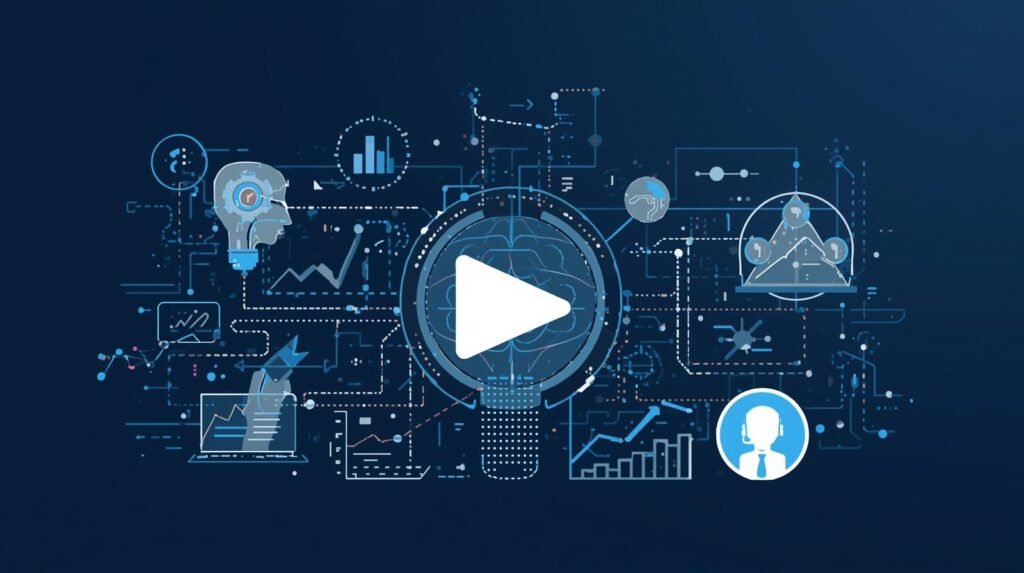
11. Voice Search and AI Optimization
As more consumers use smart speakers and voice assistants like Alexa or Siri, voice search optimization is becoming crucial.
AI helps by:
- Identifying long-tail, conversational keywords
- Optimizing content for voice-based search intent
- Ensuring content loads quickly and is structured for voice assistants
Startups that adapt early to voice search trends will enjoy first-mover advantages in the evolving SEO landscape.
12. Sentiment Analysis: Understanding Brand Perception
AI tools like MonkeyLearn or Clarabridge use sentiment analysis to interpret customer emotions from social media, reviews, and feedback.
Why It Matters:
- Detect negative sentiment early
- Improve customer satisfaction
- Refine product or messaging based on feedback
By understanding customer sentiment in real time, businesses can pivot faster and protect their brand reputation.
13. AI and Influencer Marketing
Influencer marketing is booming, but finding the right influencers can be tricky. AI simplifies this by scanning social platforms to identify influencers whose audiences align with your brand.
Benefits:
- Identifies authentic influencers
- Measures campaign impact
- Detects fake followers or engagement
Tools like Heepsy, Upfluence, and Modash use AI to ensure every partnership is data-driven and ROI-focused.
14. How AI Delivers 10x Marketing Growth
Startups and small businesses leveraging AI are achieving growth once thought impossible without massive budgets.
How AI Enables 10x Growth:
- Smarter targeting: Reach the right customer, at the right time, with the right message.
- Faster execution: Automate campaigns, testing, and analytics.
- Better decisions: Real-time insights guide every move.
- Higher conversions: Personalized experiences build loyalty and sales.
- Lower costs: AI cuts operational expenses significantly.
When you combine automation, prediction, and personalization, marketing becomes not just efficient — but exponentially effective.
15. Challenges of AI in Marketing
While AI brings huge benefits, marketers should be aware of potential pitfalls:
- Data privacy concerns: Be transparent and compliant with data laws like GDPR.
- Over-reliance on automation: Always include human creativity and empathy.
- Integration issues: Ensure tools work well with existing systems.
- Skill gap: Teams must learn how to use AI tools effectively.
With proper training and strategy, these challenges can easily be overcome.
16. The Future of AI in Marketing
The next phase of AI will make marketing even more autonomous, predictive, and human-like.
What’s Coming:
- AI that designs full campaigns end-to-end.
- Real-time emotion-based advertising.
- AI avatars representing brands on virtual platforms.
- Predictive marketing ecosystems powered by voice and vision AI.
In the near future, businesses that master AI marketing will dominate customer attention and capture the majority of their industry’s market share.
17. How to Get Started with AI Marketing Today
If you’re new to AI marketing, here’s a step-by-step plan:
- Identify goals: Is it customer engagement, conversions, or efficiency?
- Pick tools: Start with affordable platforms like Jasper, ChatGPT, or HubSpot AI.
- Collect and clean data: Quality data ensures accurate AI insights.
- Start small: Automate one task (like email or ads) and scale gradually.
- Measure results: Use analytics dashboards to track performance.
AI marketing success is not about doing everything at once — it’s about doing one thing intelligently, and building from there.
18. Conclusion
AI has completely redefined what’s possible in marketing. It enables brands to work smarter, personalize deeper, and grow faster — achieving results that were once unimaginable.
Whether you’re a startup or an established company, integrating AI into your marketing strategy is no longer optional — it’s essential for survival and growth.
By leveraging tools like ChatGPT, Jasper AI, Canva AI, HubSpot, and predictive analytics platforms, you can boost ROI, improve customer experience, and scale your marketing 10x faster than traditional methods.
The future of marketing is intelligent, data-driven, and automated — and the brands that adopt AI today will become the leaders of tomorrow.

